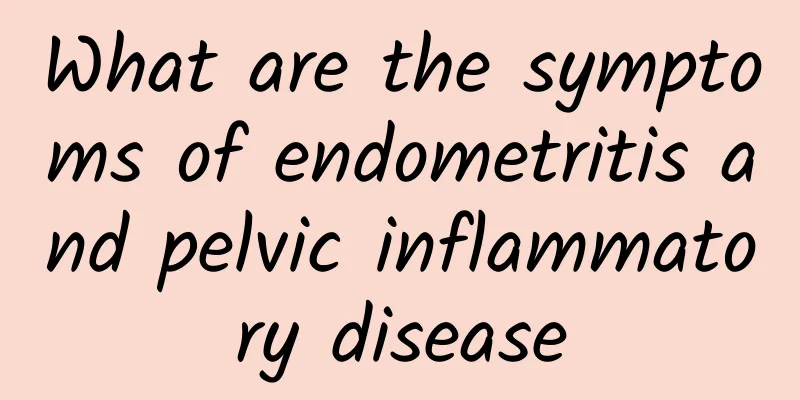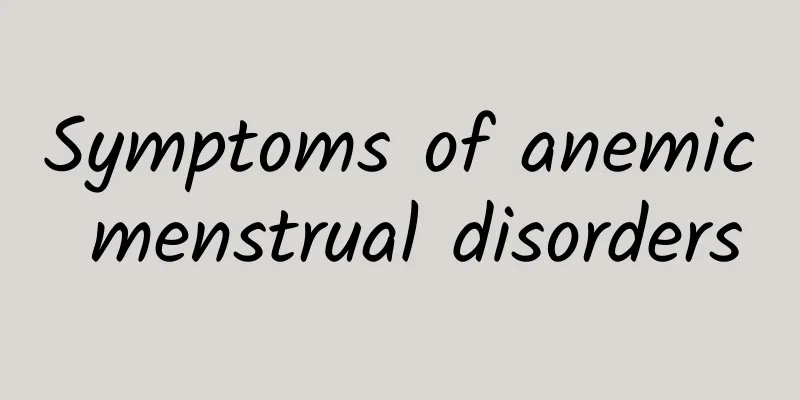What are the symptoms of endometritis and pelvic inflammatory disease

|
If you experience discomfort such as lower abdominal pain, irregular menstruation, or abnormal vaginal discharge, it is recommended that you see a doctor as soon as possible to rule out endometritis or pelvic inflammatory disease. These symptoms may indicate the presence of gynecological inflammation, and early diagnosis and treatment are essential. Endometritis and pelvic inflammatory disease are usually accompanied by different clinical manifestations and need to be distinguished based on specific symptoms. Endometritis is often manifested by lower abdominal pain, fever, irregular menstruation, and pain during sexual intercourse. Pelvic inflammatory disease may cause more severe lower abdominal pain, accompanied by nausea, vomiting, and abnormal vaginal discharge. Low back pain and difficulty urinating may also occur. These symptoms are closely related to the cause. Endometritis is often caused by bacterial infection, such as bacteria that have ascended from the cervix into the uterine cavity. Untreated vaginal or cervical inflammation may also develop into endometritis. Pelvic inflammatory disease is usually caused by untreated sexually transmitted infections such as gonorrhea or chlamydia. If the infection spreads, it may affect the uterus, fallopian tubes, and ovaries, which may worsen symptoms. The structural characteristics of the female reproductive system make it easy for bacteria to spread from the lower part of the reproductive tract to the upper part. These symptoms are closely related to the cause. Endometritis is often caused by bacterial infection, such as bacteria that have ascended from the cervix into the uterine cavity. Untreated vaginal or cervical inflammation may also develop into endometritis. Pelvic inflammatory disease is usually caused by untreated sexually transmitted infections such as gonorrhea or chlamydia. If the infection spreads, it may affect the uterus, fallopian tubes, and ovaries, which may worsen symptoms. The structural characteristics of the female reproductive system make it easy for bacteria to spread from the lower part of the reproductive tract to the upper part. Timely treatment is essential to restore health. Antibiotics are one of the main means of treatment. Doctors may prescribe broad-spectrum antibiotics or drugs for specific strains depending on the severity and type of infection. Intrauterine infection can be quickly relieved by intravenous infusion, and severe patients need to be hospitalized for treatment. Sometimes severe pelvic infections may require surgery to remove damaged tissue. Maintaining good personal hygiene and paying attention to safe sex are important measures to prevent these inflammations. If you have experienced a lower reproductive tract infection, please follow your doctor's advice for regular check-ups and receive appropriate treatment. In terms of diet, consuming more foods rich in vitamin C and B vitamins, such as oranges and spinach, can help enhance immunity. Make sure the body is adequately hydrated to facilitate its own natural healing process. |
<<: Do I need to check for cervical hypertrophy?
>>: What should I eat to replenish my body after a miscarriage in four months of pregnancy
Recommend
Can cervical erosion be seen? Is it contagious?
Cervical erosion cannot be seen directly with the...
Feed the slimming hormones to burn fat effortlessly
Now that we’ve eliminated the anti-nutrients that...
The hazards of pelvic inflammatory disease mainly include the following situations
Pelvic inflammatory disease is very harmful to wo...
How long does it take to cure mild endometrial thickening?
I believe that many women have gynecological dise...
Strict inspection of clenbuterol expanded to pig farms and pork products
The storm over the presence of ractopamine in Ame...
Does Bartholinitis cause bleeding?
What is Bartholinitis? In our lives, I believe ev...
What are the characteristics of malignant uterine fibroids? Can malignant uterine fibroids cause bleeding?
People know about uterine fibroids, right? There ...
What are the four major enemies of uterine fibroids? What is the effective treatment method for uterine fibroids?
What are the four main enemies of uterine fibroid...
Why do women suffer from premature ovarian failure?
Why does premature ovarian failure occur? Some wo...
What causes adenomyosis? Is miscarriage the cause of adenomyosis?
What causes adenomyosis? Is miscarriage the cause...
Can I have a natural birth if I have cervical erosion during pregnancy?
Cervical erosion may occur during pregnancy. Duri...
How to abort an ectopic pregnancy? Based on your actual situation
The existence of ectopic pregnancy itself has cer...
How to take care of the vagina after surgery for congenital absence of vagina
In life, people should pay attention to the impac...
How to properly care after a miscarriage
Although abortion is a minor operation, it can st...
Can you get pregnant if you have third degree cervical erosion? How to care for cervical erosion after childbirth?
What should I do if I have mild cervical erosion?...









